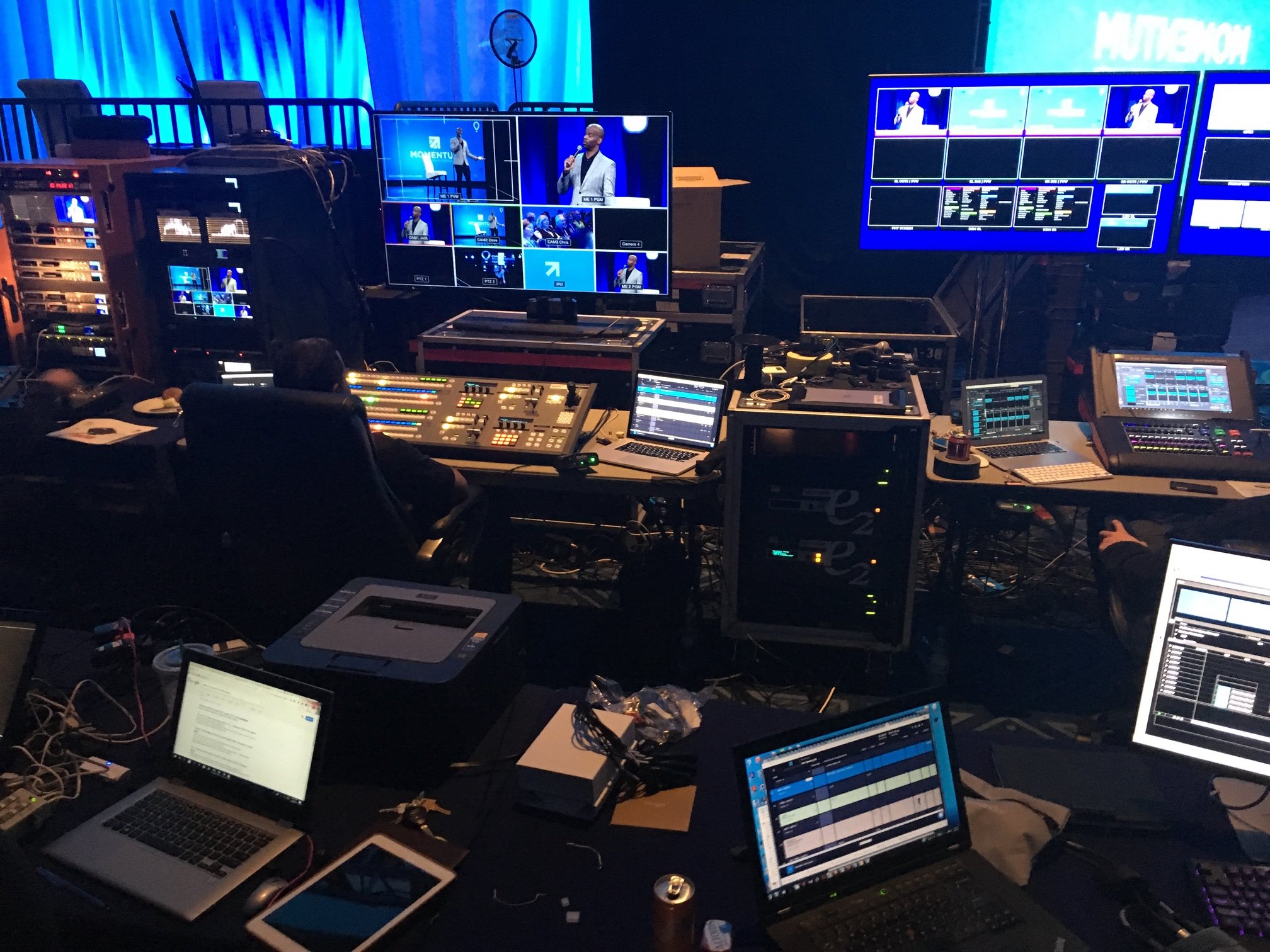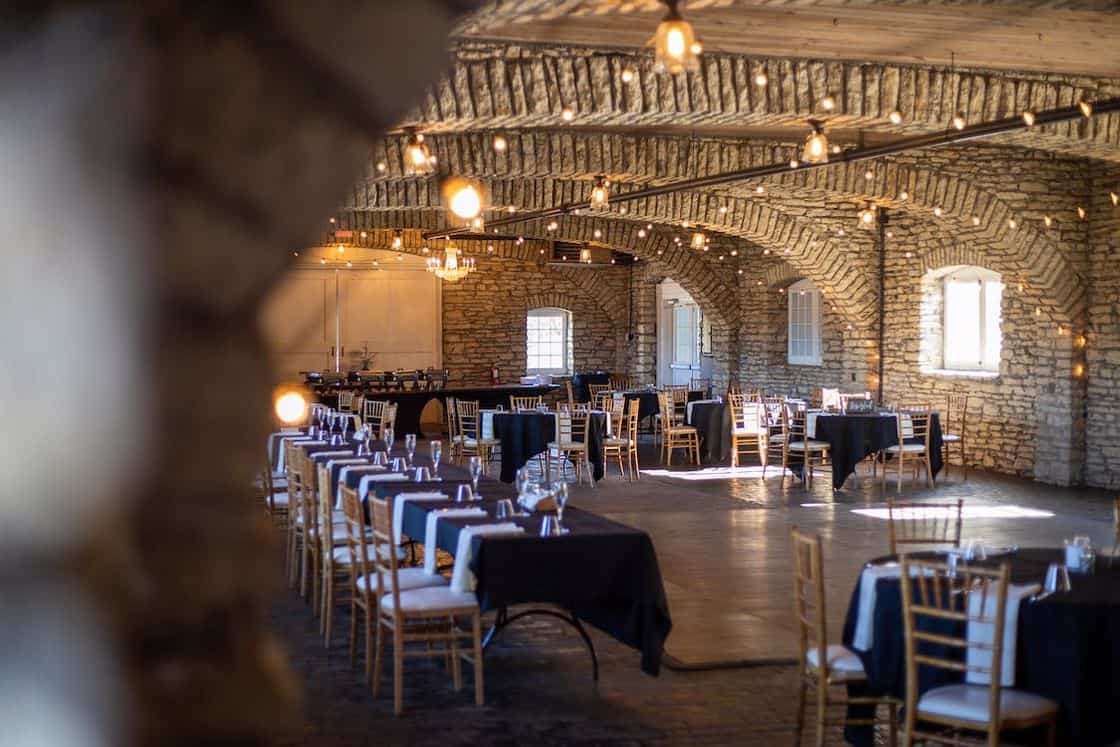Just How Event Production Functions: A Comprehensive Take A Look At the Refine
Event production is a complicated and structured process that calls for careful planning and implementation. It starts with establishing clear objectives and comprehending the target audience. Each step, from budgeting to venue selection, plays a critical function in guaranteeing success. As the process unravels, various components must align effortlessly. Yet, the subtleties of this elaborate operation usually go unnoticed. What are the key stages that contribute to a memorable event?

The First Drawing Board
When beginning on event production, careful planning is vital to ensure a successful result. The initial drawing board serves as the structure for all subsequent initiatives. Throughout this stage, event manufacturers need to specify the event's objective and objectives plainly. Identifying the target market helps customize the experience and messaging, guaranteeing relevance and engagement.Producers have to likewise take into consideration the event layout, whether it be in-person, digital, or hybrid, as this will affect different logistical elements. Selecting an appropriate day and location is important, as it affects accessibility and availability.Furthermore, setting up a dependable group is basic for splitting responsibilities and streamlining interaction. Establishing a timeline with milestones guarantees all tasks are completed on timetable. This phase includes detailed research study, consisting of identifying prospective obstacles and designing approaches to reduce risks. Eventually, a well-structured preliminary planning stage establishes the tone for an effective event production journey.

Budgeting and Resource Allotment
In event production, effective budgeting and source allotment are essential for success - event production charlotte. Establishing financial parameters establishes the structure for all subsequent decisions, while resource distribution strategies assure that every component of the event is properly supported. Together, these elements assist preserve control over expenses and optimize using readily available resources
Establishing Financial Parameters
Establishing financial criteria is crucial to the success of any kind of event production, as it sets the foundation for effective budgeting and resource allotment. This process starts with specifying the overall budget plan, which includes all facets of the event, consisting of venue costs, catering, and marketing. By determining readily available funds, event planners can prioritize expenses and allocate sources accordingly. Furthermore, it is important to conduct comprehensive marketing research to prepare for possible prices and identify financing resources, such as sponsorships or ticket sales. Developing clear economic parameters likewise help in threat administration, permitting organizers to allot backup funds for unforeseen costs. Ultimately, a well-defined spending plan acts as a roadmap, directing the event production team towards achieving their objectives while maintaining monetary control.
Resource Distribution Techniques
Reliable resource circulation strategies are vital for making best use of the effect of an event while adhering to budget plan restrictions. Successful event production calls for a careful method to budgeting and resource allocation. Organizers need to focus on important aspects such as place, catering, and technology, making sure that funds are allocated to areas that boost guest experience. A comprehensive spending plan needs to outline expected expenses and determine areas for prospective expense financial savings, such as bargaining with vendors or exploring sponsorship possibilities. Additionally, tracking expenditures throughout the preparation procedure assists stop overspending. By utilizing strategic resource distribution, event producers can supply a remarkable experience while maintaining monetary obligation, inevitably adding to the overall success of the event.
Location Option and Logistics
Picking the right place is vital to the success of any kind of event, as it establishes the stage for the total experience. Place choice involves examining various aspects, including capability, access, and location. Planners have to take into consideration the target market and the nature of the event, making sure the location straightens with the event's goals.Logistics play a substantial function in this procedure, including setups for seats, audiovisual equipment, and catering solutions. An appropriate venue must assist in smooth circulation for guests and staff, improving engagement.Additionally, evaluating potential locations for amenities like car park, restrooms, and fire escape is necessary for safety and convenience. The timeline for securing the venue is also important, as popular areas might schedule swiftly - event production charlotte. As a result, complete planning and prompt execution can ultimately add to a seamless event experience, making place choice and logistics fundamental parts of successful event production
Innovative Principle Growth
While the place sets the physical phase, creative concept development shapes the event's identification and story. This process starts with determining the event's purpose and target audience, enabling event manufacturers to formulate an engaging style that reverberates with guests. Brainstorming sessions commonly include varied perspectives, promoting cutting-edge concepts that straighten with the event's goals.Once a style is established, aesthetic elements such as shade combinations, signage, and decoration are created to enhance the general ambience. Narration methods might also be incorporated to create an engaging trip for individuals, assuring an unforgettable experience. Furthermore, considerations pertaining to home entertainment, tasks, and interactive components are lined up with the selected idea, reinforcing the motif throughout the event.Ultimately, reliable innovative principle growth warranties that every aspect of the event works cohesively, leaving a long lasting impact on guests and meeting the event's objectives. This foundational job prepares for investigate this site succeeding preparation and execution phases.
Teaming up With Suppliers and Vendors
Effective event production rests on effective collaboration with vendors and distributors. Picking reputable companions, negotiating agreements properly, and guaranteeing prompt distributions are critical actions in this process. Each of these elements adds greatly to the total success and smooth implementation of an event.
Picking Reliable Allies
How can event organizers guarantee a seamless production experience? Selecting dependable companions is crucial in accomplishing this goal. Event planners need to conduct complete research to determine suppliers and providers with a tried and tested track record of quality. This consists of inspecting recommendations, examining portfolios, and examining customer feedback. Planners need to focus on companions that demonstrate professionalism and reliability, timely communication, and a readiness to collaborate. Structure solid connections promotes trust and makes it possible for fast analytic throughout the event. Furthermore, it is beneficial to choose local vendors who comprehend the place and regional logistics. Eventually, an effective event rests on the harmony between planners and their partners, making certain that every aspect of production runs efficiently and successfully.
Discussing Agreements Effectively
Reliable arrangement of agreements is a vital action in the partnership in between event organizers and their vendors and providers. This procedure involves clear interaction of assumptions, deliverables, and more helpful hints timelines. Organizers need to perform complete research study on market rates and market criteria to develop a baseline for arrangements. It is important to develop a collective ambience, motivating open discussion regarding terms, pricing, and possible contingencies. Organizers should additionally prioritize understanding the supplier's capabilities and limitations to straighten their needs efficiently. Adaptability can bring about mutually beneficial agreements, cultivating long-term connections. Crafting well-defined agreements that consist of particular performance metrics can aid guarantee accountability, ultimately leading to successful event execution and satisfaction for all events included.
Ensuring Timely Distributions
Prompt distributions are necessary for the smooth implementation of any kind of event, needing attentive partnership between coordinators and their vendors and distributors. Effective communication is essential, as it aids develop clear assumptions relating to shipment timetables, amounts, and details requirements. Planners usually produce detailed timelines to describe critical turning points, ensuring all parties continue to be straightened throughout the process. Regular check-ins with suppliers can help recognize possible delays early, permitting proactive options. Additionally, developing solid connections with reputable distributors cultivates depend on and liability, which can result in much better solution and prioritization. By prioritizing these joint initiatives, planners can decrease interruptions, therefore improving the total effectiveness of event production and making certain that all necessary materials and solutions show up as prepared.
Advertising and Promotion Methods
While arranging an event, the success of advertising and promotion approaches can greatly affect presence and involvement. Reliable strategies usually consist of a mix of digital advertising and marketing, typical advertising and marketing, and grassroots outreach. Making use of social media platforms enables real-time interaction and targeted marketing, getting to specific demographics effectively. Email marketing campaigns can additionally involve prospective guests with personalized content and reminders.Collaborations with influencers or industry leaders can additionally enhance reliability and broaden reach. Developing appealing web content, such as videos or blog sites, aids to generate buzz and receive rate of interest leading up to the event. Furthermore, leveraging early-bird discounts and special benefits can incentivize ticket purchases.Promoting with conventional networks, such as posters or neighborhood media, stays pertinent, especially in community-focused events. A complete approach that integrates numerous techniques guarantees maximum exposure and involvement, ultimately adding to the event's success and the production of a remarkable experience for guests.
On-Site Execution and Monitoring
On-site execution and administration are important elements that figure out the overall success of an occasion. Effective sychronisation during the event ensures that all elements align with the intended schedule. Event supervisors look after logistics, including supplier sychronisation, tools arrangement, and visitor solutions. Keeping track of timelines and attending to any type of unanticipated problems are fundamental for maintaining a seamless experience.The staff plays a considerable function, as skilled personnel are accountable for various tasks such as enrollment, information dissemination, and technical support. Communication among employee is crucial; it fosters a joint environment and allows quick resolution of challenges.Additionally, safety and security methods must be followed, protecting the wellness of all attendees. Post-event analyses are also part of on-site monitoring, providing insights for future enhancements. By concentrating on these facets, event producers can create unforgettable experiences that satisfy or surpass guest assumptions while attaining the event's objectives.
Regularly Asked Inquiries
Just how Do I Select the Right Event Theme?
Picking the right event motif entails thinking about the target audience, event objective, and venue. Investigating existing fads and collecting input from stakeholders can likewise motivate creative ideas that reverberate and create an unforgettable experience.

What Prevail Blunders in Event Production?
Common mistakes in event production frequently consist of insufficient preparation, poor communication amongst group members, budget mismanagement, neglecting to take into consideration the target market's needs, and falling short to carry view it out a detailed post-event examination for future enhancements.
How Can I Gauge Event Success?
To determine event success, one can evaluate participant contentment, interaction levels, spending plan adherence, and post-event responses. Secret performance signs, such as ticket sales and social media communications, likewise provide beneficial insights right into general performance.
What Should I Do if It Moistens the Event Day?
In the event of moisten the day, the organizer needs to execute backup plans, such as safeguarding camping tents or relocating activities inside. Interaction with participants regarding adjustments is necessary to guarantee a smooth experience regardless of weather difficulties.
Just How Can I Guarantee Participant Interaction During the Event?
